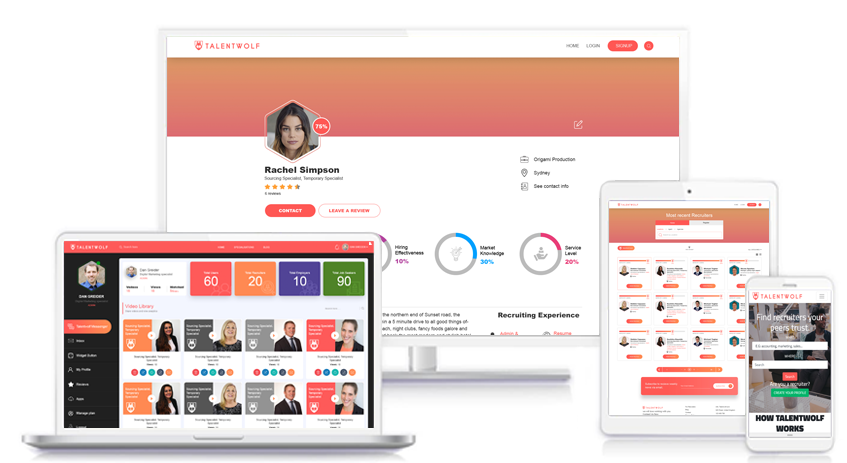Have you ever wondered what drives people to avoid certain products/services and opt for another one? Is it just the price and general appearance or perhaps something else?
Customer reviews online do great things for your business. They build the reputation of your brand, give your company a great deal of credibility, and provide social evidence to influence consumer behaviour.
- According to “Local Consumer Review Survey” by BrightLocal, “91% of 18-34-year-olds trust online reviews as much as personal recommendations” before feeling able to trust a local business.
- 4 in 5 customers before making a purchase decision read online review
- 79% make sure the product or service is good, 61% read reviews to ensure the product or service is working and 53% read reviews to ensure it is not ripped off.
- 83% of shoppers discover new products or services every month through online customer reviews. eMarketer research firm reports that 7% of consumers must read at least 20 reviews before they have adequate trust in a business
- 69% of customers believe that reviews older than 3 months are no longer relevant.
The same customer psychology applies to choose a recruiter – job seekers are much more likely to pick your services if you’re present online and have reviews from previous customers. There is no doubt that online reviews will be a useful tool in getting new business and attracting more clients. How can you ask your customers for feedback?
This guide will go into detail about all the different ways to get more reviews, including:
- When to Ask for Review
- How to Ask for Reviews
- Benefits of Asking for Reviews
- Asking for Reviews on Specific Sites
- Type of feedback you expect
When to Ask for Reviews
If you’re trying to get more reviews, you’ll want to optimize exactly when you ask your customers for reviews.
Here’s a summary of our findings:
The two best times to ask for reviews are between 2-3 PM and 6-7 PM. These are the times consumers are most likely to rate a business. That makes sense. People are often visiting businesses during their lunch break or after work, so these hours are the exact times that consumers are reflecting on their experiences.
When not to ask for reviews? Based on some researches, hardly anybody is writing reviews from the dead hours of 2 AM to 4 AM. But what’s interesting is that in the morning, from the time people wake up until lunchtime, review generation is pretty slow, at least relative to the amount of review-writing activity that occurs after lunch.
ASK FOR FEEDBACK RIGHT AFTER THAT SUCCESSFUL JOB PLACEMENT
First deliver great news, then politely ask to comment on the quality of your services so that other job seekers know they can trust you.
Don’t wait too long, even if a customer was extremely happy with your assistance, chances are that in a few weeks or months they might not recall the details of your cooperation that well anymore.
That why it’s best to ask your client for a review right after the successful job placement when they’re excited and grateful for your support throughout the whole process.
SEND A FOLLOW UP EMAIL
Customers are forgetful, so send them a friendly follow-up email reminding them to leave you feedback. You can do it from your business e-mail or via platforms like Talentwolf, which allows you to send review requests to many clients at once.
There is nothing wrong about expecting a 5-star review from a satisfied customer so don’t hesitate and follow up with the ones that haven’t left you feedback yet!
How to Ask for a Review
So, what’s the best way to reach out to your customers and ask for a review? Here are some best practices and techniques to help you achieve the best results and optimal response rates.
ASK FOR REVIEWS VIA EMAIL
One of the most effective ways to generate new reviews is through review request email campaigns.
The campaigns usually take on the form of customer feedback survey; other times, the email message is much simpler and more straightforward, containing a link to a page where the recipient can write a review.
If you’re just getting started with review generation, email should be at the top of your list of channels for requesting reviews. 70% of reviews come from post-transactional review request emails.
Requesting reviews via email also means you get to tie your reviews to transactions that actually happened, lending valuable authenticity to your reviews.
Know your goals. What do you want to achieve apart from generating new reviews? Are you trying to measure loyalty? Or do you want to get feedback on how you’re doing with customer service? Only by identifying your goals from the very start will you be able to ask the right survey questions and collect the right information.
Personalize your email. Put careful thought to your review request emails and write them in a way that individually acknowledges each recipient. You can design the most dazzling email in the world, but you won’t achieve high open rates and response rates if the message feels cold and impersonal from the start.
Keep it short. When was the last time you took a 30-minute survey? Probably never. If your own review request email or survey takes too long to complete or even read, you run the risk of respondents abandoning it before completion.
So keep your message short. Keep it simple. Avoid unnecessary questions or phrases that your customers are unlikely to understand. If you would like them to review your business on a specific website, say so explicitly and provide clear instructions on how to do it.
If you’re going to ask for a rating, ask right away. Some companies leave it until the end before they ask for a review score or star rating. This isn’t exactly ideal. Why? Because it’s a crucial question or request that practically demands a gut reaction, and if you’re going to ask for a rating after a 5- to 10-minute round of less important questions, there’s a chance that you might invalidate the customer’s response.
Respond immediately if necessary. If you receive negative feedback after asking for reviews from customers, act quickly and respond to let them know you are working on the issues they pointed out. Whether you’re making a phone call or sending an email, do so in a timely manner; otherwise, you run the risk of leaving an unhappy customer stewing and potentially deciding not to visit your business again.
REQUEST REVIEWS VIA SMS
Did you know that 56%of all online reviews are posted from mobile devices?
If you send customers a text message survey or a review request via SMS, there’s a good chance they’ll click on that link. Text messages are opened at a 98% rate, whereas email typically has a 40 to 50% open rate.
Benefits of Asking for Reviews
Reputation boost. A stream of 5-star reviews from customers helps showcase your business and creates powerful social proof for inspiring shopper confidence and driving sales.
Higher ratings. the average rating of reviews generated from review requests is 4.34 stars out of 5: higher than the average rating of unprompted reviews (3.89 stars out of 5).
Asking customers for reviews also tends to produce reviews that have a higher percentage of 5-star ratings; these are likely to remain steady over time. Unprompted reviews, on the other hand, claim a larger share of 1-star ratings; over time, the overall rating tends to drop.
Instant outreach. Proactively asking for feedback helps strengthen customer relationships — and connects your business to the voices that matter the most.
Asking for reviews on specific sites
The more choice they have, the more likely they are to write a review from the comfort of their mobile or laptop. Make sure that the online platform you chose for leaving reviews is mobile friendly to make things simple and straightforward for the reviewer.
A good place to start collecting your recruiter reviews is Talentwolf, where you can showcase your skills and validate your recruiting services in front of other customers browsing through the website.
Other options you can consider are Google reviews – ask the client to review your company and specifically – to include your name as the person that they dealt with.

Tell reviewers exactly what kind of feedback are you expecting.
If you require more elaborated answers, try wording your review requests like this:
“Please take a minute to review my services:
- How was the communication between you and your recruiter?
- Did my services meet your expectations?
- Would you recommend my services to a friend?
- Did my support in your job search satisfy you? ”
Sometimes customers lack initiative and without knowing what exactly are they asked about, they might only leave a star rating. By helping them with additional questions, they are more likely to write an informative review which will make you stand out amongst other recruiters.
Make it a habit to thank every reviewer
Even though leaving feedback is voluntary and the reviewer usually doesn’t expect anything in return, it’s a nice gesture to thank customers for taking the time out of their days to write a review. They will feel appreciated and more motivated to recommend your services to their friends.
Moreover, future readers will notice your interaction with the reviewers, which will make you appear more credible and thoughtful of your clients. It’s a win-win situation!
Spread the word. Successfully secured reviews after asking customers? Amplify their feedback. Go social. Share their experiences across your social media profiles. Tweet it. Put it on your Facebook Page. Upload a screenshot of the review as part of your business’ Instagram Stories or photostream.
Review sites are influential enough, but remember that a whole lot of people, too, research information about businesses, products, and services using social media platforms like Facebook, Instagram, and Twitter.
Online reviews are a great way to validate your services and appear more trustworthy in the eyes of job seekers. The more reviews you collect, the easier it will be for your future clients to find you and trust you. Your customer experience is the key. Don’t be afraid to ask for feedback after successful job placement.
Make sure that leaving a review is effortless and straightforward, so don’t discourage reviewers with too many questions. Get straight to the point, show them available platforms for leaving feedback and remember to always say “thank you”, to show your appreciation.
That makes a big difference when you’re aspiring to compete with other recruiters who use customer ratings and reviews extensively.





